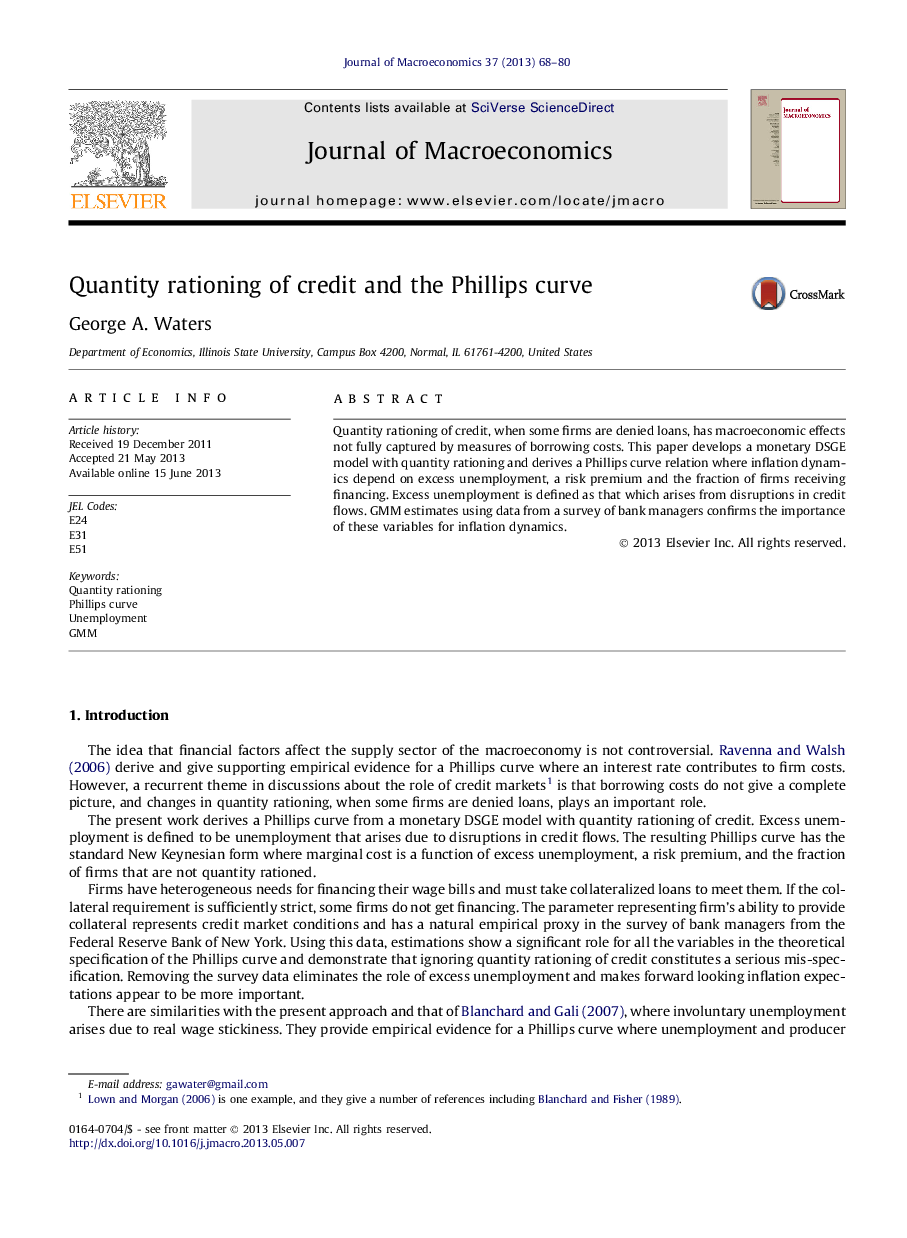| Article ID | Journal | Published Year | Pages | File Type |
|---|---|---|---|---|
| 964938 | Journal of Macroeconomics | 2013 | 13 Pages |
•Quantity rationing of credit occurs when some firms are denied loans.•Inflation dynamics depend on excess unemployment, a risk premium and quantity rationing.•Excess unemployment arises due to disruptions in credit flows.•GMM estimates confirm the importance of these financial variables.
Quantity rationing of credit, when some firms are denied loans, has macroeconomic effects not fully captured by measures of borrowing costs. This paper develops a monetary DSGE model with quantity rationing and derives a Phillips curve relation where inflation dynamics depend on excess unemployment, a risk premium and the fraction of firms receiving financing. Excess unemployment is defined as that which arises from disruptions in credit flows. GMM estimates using data from a survey of bank managers confirms the importance of these variables for inflation dynamics.
